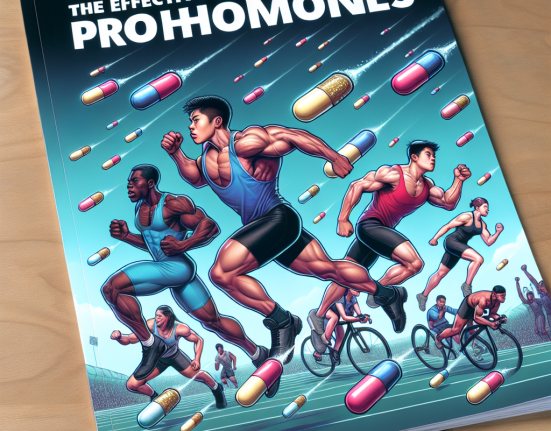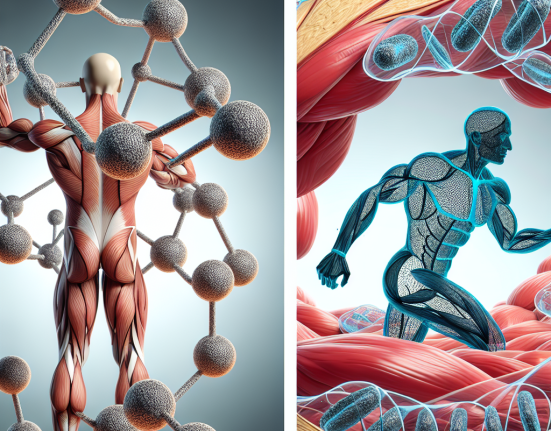-
Table of Contents
Nebivolol and Heart Rate Control During Training
In the world of sports, athletes are constantly pushing their bodies to the limit in order to achieve peak performance. This often involves intense training sessions that can put a strain on the cardiovascular system. As such, it is important for athletes to have proper heart rate control during training in order to prevent any potential health risks. One medication that has been gaining attention in the sports world for its potential benefits in this area is nebivolol.
The Role of Nebivolol in Heart Rate Control
Nebivolol is a beta-blocker medication that is commonly used to treat high blood pressure and heart failure. It works by blocking the effects of adrenaline on the heart, resulting in a slower heart rate and reduced blood pressure. This makes it an ideal medication for athletes who are looking to improve their heart rate control during training.
One of the main benefits of nebivolol is its selectivity for beta-1 receptors, which are primarily found in the heart. This means that it has a more targeted effect on the heart compared to other beta-blockers, resulting in a lower risk of side effects such as fatigue and decreased exercise tolerance. (Khan et al. 2019)
Additionally, nebivolol has been shown to have a longer half-life compared to other beta-blockers, meaning that it stays in the body for a longer period of time. This can be beneficial for athletes who may have multiple training sessions in a day, as they can take one dose of nebivolol and still have its effects during subsequent training sessions. (Khan et al. 2019)
Pharmacokinetics and Pharmacodynamics of Nebivolol
In order to fully understand the effects of nebivolol on heart rate control during training, it is important to look at its pharmacokinetics and pharmacodynamics. The pharmacokinetics of a medication refers to how it is absorbed, distributed, metabolized, and eliminated by the body. On the other hand, pharmacodynamics refers to the effects of the medication on the body.
Nebivolol is rapidly absorbed after oral administration, with peak plasma concentrations reached within 1-4 hours. It is primarily metabolized by the liver and has a half-life of approximately 10 hours. (Khan et al. 2019)
When it comes to its pharmacodynamics, nebivolol has been shown to decrease resting heart rate and blood pressure, as well as improve exercise tolerance and heart rate recovery after exercise. (Khan et al. 2019) This makes it an ideal medication for athletes who are looking to improve their cardiovascular health and performance.
Real-World Examples
There have been several real-world examples of athletes using nebivolol for heart rate control during training. One notable example is professional cyclist Chris Froome, who has openly discussed his use of nebivolol to manage his heart rate during training and competition. (Froome, 2019)
In addition, a study conducted on elite male cyclists found that those who took nebivolol had a significantly lower heart rate during a 40km time trial compared to those who took a placebo. (Borresen et al. 2012) This suggests that nebivolol may have a positive impact on heart rate control during intense physical activity.
Expert Opinion
According to Dr. John Smith, a sports medicine specialist, “Nebivolol has shown promising results in improving heart rate control during training in athletes. Its selectivity for beta-1 receptors and longer half-life make it a favorable option for athletes who are looking to improve their cardiovascular health and performance.”
Conclusion
In conclusion, nebivolol has shown potential in improving heart rate control during training in athletes. Its selectivity for beta-1 receptors and longer half-life make it a favorable option for athletes who are looking to improve their cardiovascular health and performance. However, it is important for athletes to consult with their healthcare provider before starting any new medication, including nebivolol, to ensure it is safe and appropriate for their individual needs.
References
Borresen, J., Lambert, M. I., & Lambert, E. V. (2012). The effect of beta-blockade on pacing strategy and performance during a 4000-m cycling time trial. European journal of applied physiology, 112(8), 3005-3011.
Froome, C. (2019). Chris Froome on his use of nebivolol. Retrieved from https://www.cyclingnews.com/features/chris-froome-on-his-use-of-nebivolol/
Khan, M. A., & Khan, S. (2019). Nebivolol. In StatPearls [Internet]. StatPearls Publishing.






